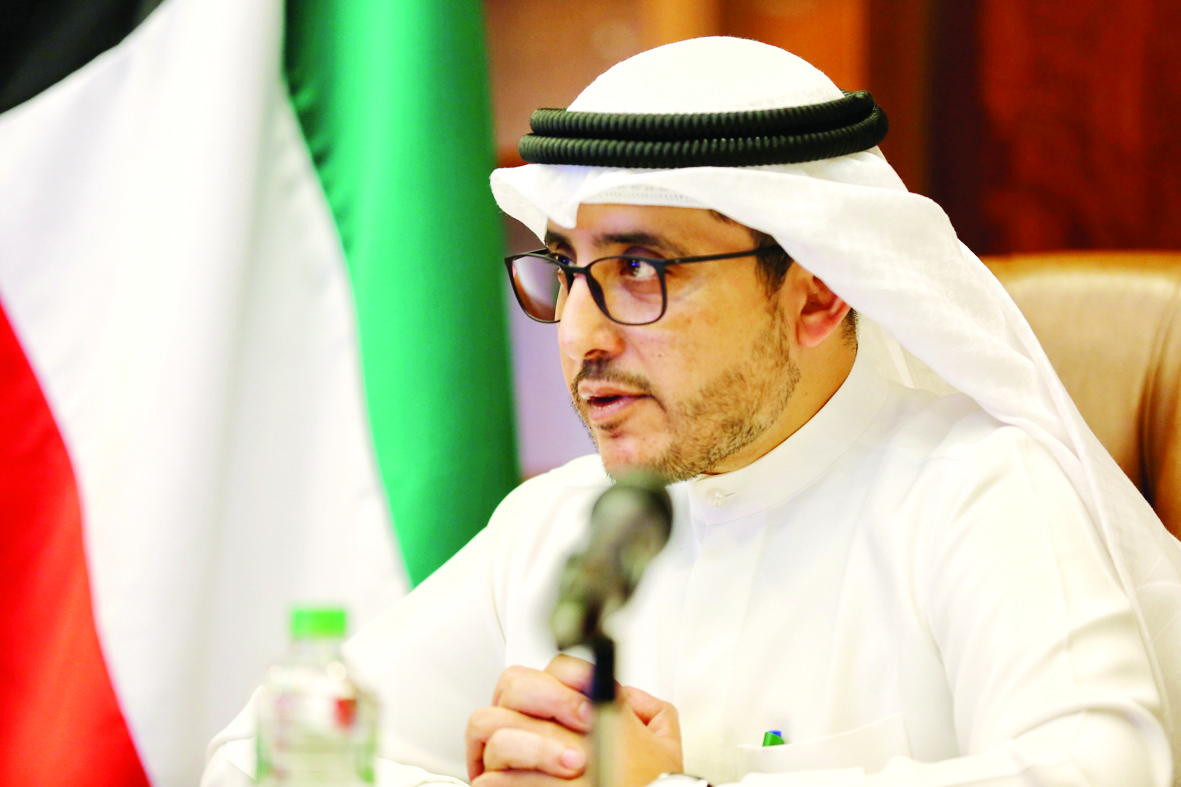
KUWAIT: The International Committee of the Red Cross (ICRC), the Kuwait Ministry of Foreign Affairs, the Kuwait Red Crescent Society (KRCS), and the Kuwait Fund for Arab Economic Development (KFAED) Monday held the third edition of the annual High-Level Policy Dialogue to exchange insights on trends in the humanitarian environment and responses amid the COVID-19 pandemic.
The event, held by videoconference, brought together Sheikh Dr Ahmad Nasser Mohammad Al-Ahmad Al-Sabah, Minister of Foreign Affairs of Kuwait, Dr Hilal Al-Sayer, President of the Kuwait Red Crescent Society, Abdulwahab Ahmad Al-Bader, Director General of the Kuwait Fund for Arab Economic Development, and Peter Maurer, President of the ICRC, to discuss the impact of the COVID-19 pandemic in Kuwait and the Middle East region and explore how they can enhance cooperation to provide sustainable responses to the needs of affected persons.

In countries affected by armed conflict, the pandemic compounds the suffering of millions of vulnerable people that are already struggling to meet basic needs such as shelter, food, water, and medical care. The ICRC shared its experience in trying to address those challenges in Iraq and discussed examples of its response in Yemen and Syria.
The participants acknowledged that beyond treating and preventing COVID-19 infection, the numerous long-term secondary impacts remained a major concern. The pandemic threatens every aspect of peoples' lives, amplifying inequalities, disrupting communities and reversing development gains made in the past decade. It is also a massive education crisis, and potential food security crisis that could deepen poverty and hunger. Globally, we see hard-won development gains set back as schools shut, wages are lost, businesses close, and health needs are put at risk. The socioeconomic impact has been substantial, said Peter Maurer, the ICRC's president.
The response should look to support the social system, building on past experience of pandemics. I am confident that the continued partnership with the State of Kuwait, the KRCS and KFAED will contribute to the alleviation of human suffering through a dedicated collaborative approach to humanitarian causes, he added. There is also a critical role for states to play to facilitate the work of international actors while maintaining the necessary exceptional measures for fighting the pandemic, Maurer said.
Meanwhile, Sheikh Dr Ahmad Nasser Mohammad Al-Ahmad Al-Sabah, Minister of Foreign Affairs of Kuwait, said that this strategic dialogue should be an example to be followed between other states and humanitarian organizations. Our dialogue demonstrates that many changes occurred during the current crisis. It also shows the importance of emphasizing the cooperation between the State of Kuwait and the ICRC in the framework of international humanitarian law, which is a pillar of Kuwait's foreign policy, he stated.
Dr Hilal Al-Sayer, President of the KRCS, said participating in this high-level dialogue ensures the delivery of effective, coordinated humanitarian response, which should be an integral part of the diplomatic relations between countries.
Abdul Wahab Al-Bader, the Director General of KFAED, reassured that humanitarian efforts through partnership and practical strategic dialogue fosters response to the COVID-19 pandemic, inside Kuwait and globally.
The event concluded with a joint statement, reiterating the continued support of the State of Kuwait to the humanitarian efforts of the ICRC, underscoring the importance of the critical nexus between humanitarian action and development work. The High-Level Policy Dialogue between ICRC and the State of Kuwait affirms the shared commitment to principled humanitarian action as a public good. The role of states in supporting and facilitating humanitarian action, exemplified by Kuwait's international initiatives in general and support to ICRC remains crucial.
This is doubly true given the new operating constraints that the COVID19 pandemic has wrought. The ICRC and the State of Kuwait reiterated their commitment to fighting the dire consequences of the COVID19 pandemic through humanitarian and development work on both local and international levels. The State of Kuwait and the ICRC reaffirmed their commitment to their policy engagement by confirming the fourth high-level policy dialogue to take place in Geneva, Switzerland, in 2021.











